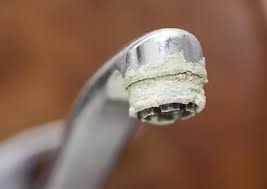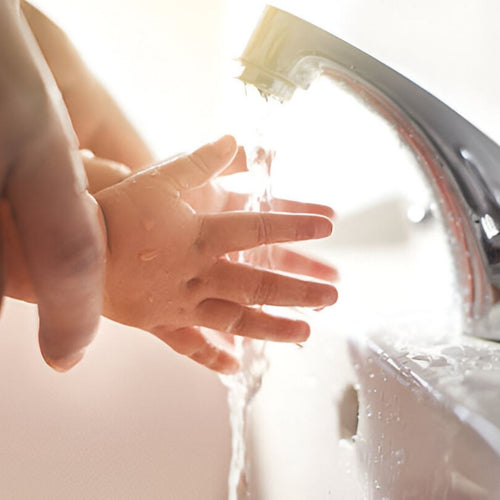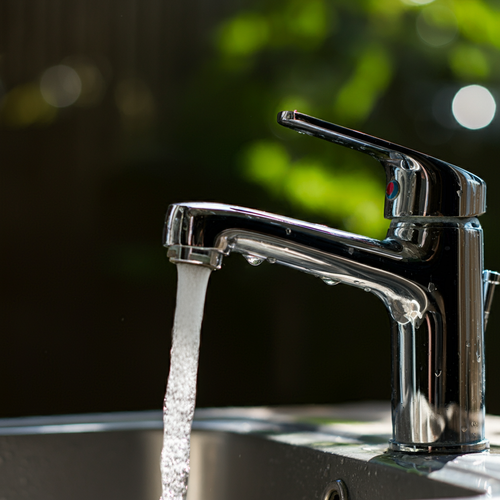Water is the storyteller of geological history, carrying minerals from ancient rock formations right into our homes. Ever wondered why your faucets develop mysterious white crusty patches or why your soap refuses to create those satisfying suds? Welcome to the intriguing world of hard water – a natural phenomenon that's part geological marvel, part household challenge.
The Geological Genesis of Hard Water

Picture water as a subterranean explorer, embarking on an epic journey through layers of rock and mineral deposits. As groundwater percolates through limestone, chalk, and dolomite formations, it becomes a mineral collector. Calcium and magnesium ions hitchhike with the water, transforming it from a simple H2O molecule into a complex mineral solution.
Understanding Water Hardness: More Than Just a Number

Water hardness isn't an arbitrary measurement but a precise scientific evaluation of dissolved mineral content. Professionals measure these minerals in grains per gallon (GPG) or parts per million (PPM), creating a comprehensive spectrum of water characteristics.
The Hardness Spectrum:
- 0-3 GPG: Soft Water (Minimal mineral presence)
- 3-7 GPG: Moderate Hard Water (Noticeable mineral content)
- 7-10 GPG: Hard Water (Significant mineral concentration)
- 10+ GPG: Very Hard Water (Mineral-rich powerhouse)
The Multifaceted Impact of Hard Water
Hard water is far more than a simple household inconvenience. It's a complex phenomenon with intricate implications for infrastructure, economics, and even human health.
Economic Ripple Effects
The financial consequences of hard water extend far beyond mere annoyance. Mineral accumulation creates a domino effect of economic challenges:
Imagine your water heater working overtime, struggling against mineral buildup. Each layer of calcium and magnesium deposits acts like a thermal insulator, forcing the appliance to consume more energy to maintain temperatures. The result? Increased utility bills and accelerated equipment degradation.
Appliance lifespans shrink dramatically in hard water environments. Washing machines, dishwashers, and water heaters face premature retirement, compelling homeowners to replace expensive equipment more frequently than necessary.
Household Performance Dynamics
Hard water transforms everyday household tasks into subtle challenges. Laundry becomes a battle against mineral-induced stiffness, with fabrics losing softness and color vibrancy. Dishes emerge from dishwashers with cloudy films, and shower doors develop persistent mineral scales that seem impervious to traditional cleaning methods.
The Surprising Health Perspective
Not all narratives about hard water are negative. The minerals dissolved in these waters – primarily calcium and magnesium – offer potential nutritional benefits. Epidemiological studies have suggested intriguing correlations between hard water regions and reduced cardiovascular disease risks, potentially attributing this to trace mineral intake.
Water Treatment: Technological Solutions for Mineral Management
Ion-Exchange Water Softening
Traditional water softening technology operates like a microscopic chemical exchange program. Specialized resin beads capture calcium and magnesium ions, replacing them with sodium ions. This process effectively neutralizes water's hardness, preventing mineral accumulation in pipes and appliances.
Advanced Filtration Technologies
Reverse osmosis represents the pinnacle of water purification. By forcing water through ultrafine semipermeable membranes, these systems can remove up to 99.9% of dissolved minerals, creating virtually pure water. The technology mimics natural biological filtration processes, offering unprecedented precision in contaminant removal.
Strategic Water Treatment Selection
Choosing an appropriate water treatment solution requires a holistic approach. Homeowners must consider multiple factors:
Water hardness isn't just about numbers – it's about understanding your specific household ecosystem. Local geological conditions, water source characteristics, and individual consumption patterns all play crucial roles in determining the most effective treatment strategy.
Practical Management Strategies
Professional water treatment experts recommend a multifaceted approach to managing hard water:
Regular maintenance becomes key. Descaling appliances, using targeted cleaning solutions, and implementing whole-house water treatment systems can dramatically mitigate hard water's negative impacts. Think of it as preventative healthcare for your home's water infrastructure.
The Broader Water Quality Perspective
Understanding hard water transcends mere technical knowledge. It represents an opportunity to appreciate water's complex journey from geological formation to household consumption. Each drop carries a narrative of mineral interactions, geological transformations, and human technological innovation.
Conclusion: Embracing Water Intelligence
Hard water isn't a problem to be eliminated but a natural phenomenon to be understood and managed. By developing comprehensive strategies and leveraging advanced technologies, homeowners can transform potential challenges into opportunities for improved water quality and infrastructure longevity.


















![Aldex Premium 10% Cross Link Resin for Water Softener [High Capacity]-SoftPro® Water Systems](http://www.softprowatersystems.com/cdn/shop/files/Aldex_10_Cross_Link_Resin_Premium_High_Capacity_for_Water_Softener_600x.jpg?v=1735853599)




















